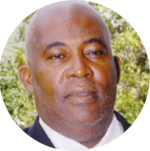
Prime Minister Philip Pierre proclaimed at the 36th Annual General Meeting of the Castries East Constituency, that his government will implement programmes to get young people out of their deviant behaviours.
In part one of this series, it was established, with the help of the philosopher Aristotle, that man was born good, but it is the environment in which he lives that affects his behaviour in a positive or negative way.
Indeed, the Grand Master of the universe, indicated in the Holy Bible, that He made man, and saw that it was good. Then how would we be able to get young people to conform to the norms of our society?
Now what is meant by conformity? By conformity I mean the change in behaviour which demonstrates that people are complying with the standards, rules and laws established by the group or society.
Indeed, preventing behaviour problems is a serious responsibility. One has to be ready to put in some hard work to get young people to change their behaviour’ or even worse, their deviant behaviours.
The following are some tips which could help:
Parents should continually monitor their children’s behaviour. And this is a serious responsibility. It means that they should know where their children and adolescents are, what they are doing and with whom, and provide appropriate supervision. These aspects of supervision are particularly important during the teenage years, when young people become more independent and spend more time away from home.
Indeed, parents should develop simple techniques for monitoring their children and adolescents. I wish to suggest three techniques here: (a) Make a list of your child’s weekly activities and keep it close by for easy reference; (b) Check up on your child occasionally to see if he/she is where he/she said he/she is going to be. (c) You may wish to discuss child’s or adolescent’s activities when he/she returns home. Your child or adolescent would determine that you show interest in his or her programme of activities.
Let me take the opportunity to indicate here, that parents should encourage their children to make friends with others who are not involved in problem behaviours. In fact, child knows his/her peers who have behaviour problems in class and in the communities. Those are the children who would have negative influence on your child.
Now, as a trained teacher, I can tell you that peers have great influence on your children or adolescents. They would do in a group what they will not do at home in your presence.
Indeed, parents and teachers too, should avoid creating unsupervised groups of children with behaviour problems. Children may learn problem behaviour from each other and encourage each other to behave inappropriately. This is what is often referred to as peer influence.
Now some children may not be duly influenced, if they are properly trained at home and at school. But parents should not ‘bank’ on that! Those groups should be closely monitored to prevent young people from encouraging behaviour problems amongst their peers.
Parents and teachers should create enjoyable activities for children and teenagers that involve adult supervision. Supervise recreational activities allow children and young people to interact with their peers but also keep children and young people away from situations that may tempt them to try cigarettes, alcohol, drugs and risky sexual behaviours.
Indeed, it is very important for parents to limit the amount of time children spend after school is over. There is what is referred to as extra-curricular activities at school. These may include cricket, football, and youth meetings of some sort. Those activities are very healthy if they are well coordinated and supervised. These activities would allow children and young people to release the excess energy and to carve a name for themselves which would be utilised by the community in which he or she lives. To be continued.













